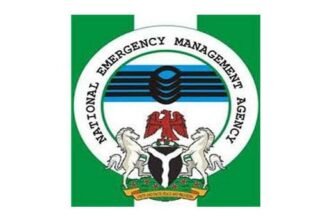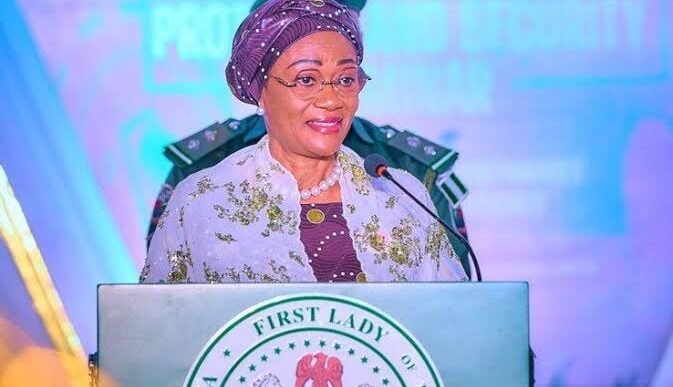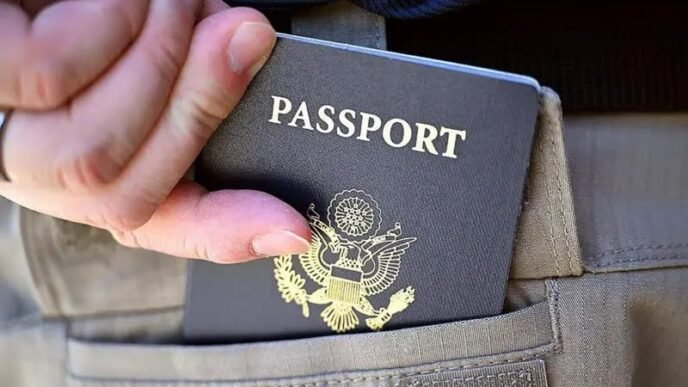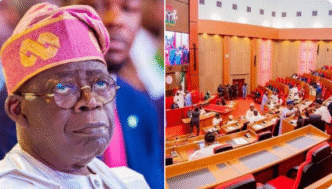BREAKING NEWS: FG Disburses ₦300 Billion to Over Eight Million Households — A Major Push in Social Safety Nets
Abuja, 13 October 2025 — In a landmark announcement, the Federal Government of Nigeria has disclosed that it has disbursed over ₦300 billion to more than 8.1 million households across the country under its Conditional Cash Transfer (CCT) programme.
The Minister of State for Humanitarian Affairs and Poverty Reduction, Yusuf Sununu, made this known on Monday during a roundtable in Abuja to commemorate the International Day for Disaster Risk Reduction.
According to the minister, the disbursement is one of the largest social welfare payments in Nigeria’s history and forms a key component of the government’s ongoing efforts to mitigate poverty and cushion the effects of economic hardship on vulnerable citizens.
Sununu explained that the programme has already yielded positive results in improving the well-being of millions of Nigerians. “This has really improved their capacity, improved their health, and education, and the process will continue,” he said.
The funds were channeled through the National Social Investment structures under the Conditional Cash Transfer initiative, designed to support low-income households across all 36 states and the Federal Capital Territory.
Key Figures
| Metric | Value |
|---|---|
| Total disbursement | Over ₦300 billion |
| Beneficiary households | 8.1 million |
| Programme | Conditional Cash Transfer (CCT) |
| Implementing agency | National Social Investment structures |
Why the Cash Transfers Matter
Nigeria continues to face economic challenges marked by rising inflation, high living costs, and the lingering effects of fuel subsidy removal and foreign exchange reforms. These reforms, while aimed at stabilizing the economy, have pushed millions of households into deeper financial distress.
The government’s cash transfer programme is a key part of its social protection response—providing direct support to those hit hardest by the reforms. Officials say the initiative is designed not just as temporary relief but as part of a larger plan to lift millions out of poverty over time.
The Conditional Cash Transfer (CCT) scheme is anchored in Nigeria’s National Social Investment Programme (NSIP), which targets the most vulnerable through periodic payments tied to specific welfare obligations—such as children’s school attendance, hospital visits, and participation in community development initiatives.
Through this system, beneficiaries receive payments directly via verified digital channels to ensure accountability and prevent leakages.
Expanding the Reach
Government officials noted that reaching 8.1 million households is a major milestone, but the goal is to expand the programme even further. Efforts are ongoing to register additional beneficiaries, especially in rural and underserved communities.
The disbursement is part of President Bola Ahmed Tinubu’s “Renewed Hope Agenda,” which prioritizes poverty reduction, job creation, and human capital development. The initiative aligns with Nigeria’s long-term vision to reduce the poverty rate and strengthen social resilience against economic shocks.
There are reports indicating that total disbursements under related social welfare schemes could exceed ₦330 billion, covering additional households through various social protection platforms. However, government sources have yet to clarify whether this ₦300 billion tranche is separate or part of the broader disbursement plan.
Support for Disaster Victims and IDPs
The government also announced additional interventions targeted at households affected by natural disasters and internal displacement.
- Flood-Affected Families: About ₦6.3 billion will be disbursed as interest-free and collateral-free loans to 21,000 households, with each expected to receive ₦300,000 to rebuild their livelihoods and restart farming activities.
- Internally Displaced Persons (IDPs): A new agricultural support scheme will allow IDPs to cultivate farmland, retain 30% of the produce, while the government will purchase the remaining 70%, paying them directly.
These measures, the minister said, are part of a broader plan to integrate social protection with food security and disaster recovery.
Implementation Challenges
Despite the impressive figures, the CCT programme continues to face several challenges that could affect its impact:
- Verification and Targeting:
Ensuring that only eligible beneficiaries receive the funds remains a key issue. The use of National Identity Numbers (NINs), Bank Verification Numbers (BVNs), and other digital verification tools has been introduced to curb fraud and duplication. - Sustainability:
Maintaining the scale of these disbursements amid fiscal constraints poses a long-term challenge. Experts have called for integration of social protection into Nigeria’s annual budget and improved revenue mobilization to sustain the programme. - Monitoring and Compliance:
Since the transfers are conditional, beneficiaries are expected to meet certain requirements, such as ensuring their children attend school or undergo health checks. Effective monitoring remains difficult in remote and underserved areas. - Inflationary Pressures:
The continued rise in inflation reduces the purchasing power of the cash received. Economic analysts argue that the real impact of ₦25,000 or ₦30,000 monthly payments is weakened by high food and transport costs. - Transparency and Public Perception:
While the government insists the disbursement is transparent, critics have called for independent audits to verify claims and ensure that funds are reaching intended households. Transparency will be vital to maintaining public trust.
Impact on Households
For millions of low-income Nigerians, the disbursement represents a lifeline. Families that have struggled with feeding, healthcare, or school fees may now have temporary relief.
Beneficiaries in various states have reported that the cash transfers have allowed them to restock food supplies, pay medical bills, and cover basic education expenses.
Economists note that such cash-based interventions, when well targeted, can stimulate local economies by increasing consumption and small-scale trade in rural areas. However, they also emphasize that social welfare alone cannot substitute for job creation and economic reforms.
Broader Government Strategy
The cash transfer initiative is part of a wider network of social programmes under the Ministry of Humanitarian Affairs and Poverty Reduction. Other components include:
- Government Enterprise Empowerment Programme (GEEP): Microloans for small business owners and petty traders.
- N-Power: Employment and skills acquisition for young graduates.
- Home-Grown School Feeding Programme: Daily school meals to boost enrolment and nutrition among primary school children.
The integration of these initiatives aims to create a comprehensive approach to poverty reduction, linking immediate cash support with long-term empowerment.
Looking Forward
Government sources suggest that future disbursements will continue under the Renewed Hope Cash Transfer Programme, which is being digitized to improve efficiency and accountability. Plans are underway to integrate state governments more deeply into the programme to ensure broader coverage.
The Ministry also hinted at stronger collaboration with international partners such as the World Bank and the African Development Bank to scale the programme and embed it into Nigeria’s long-term development framework.
Experts recommend that the government strengthen data collection systems, invest in job creation, and prioritize inflation control to complement the gains of cash transfers.
Conclusion
The Federal Government’s disbursement of ₦300 billion to over eight million households marks a significant milestone in Nigeria’s fight against poverty. It demonstrates a renewed commitment to cushioning vulnerable citizens from economic shocks while promoting inclusive growth.
However, the sustainability and transparency of such massive programmes remain crucial. Ensuring that every naira reaches the intended beneficiary, backed by robust monitoring, will determine whether this historic initiative truly lifts millions out of poverty—or merely provides short-term relief in a difficult economic climate.
The coming months will reveal how effectively the programme translates from figures on paper to real, measurable change in the lives of ordinary Nigerians.














